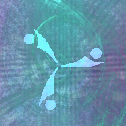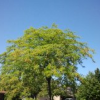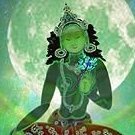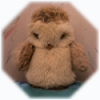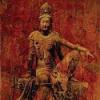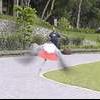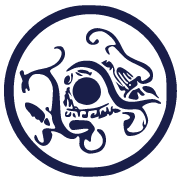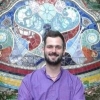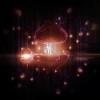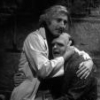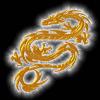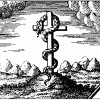Search the Community
Showing results for 'Dream'.
Found 7,590 results
-
It has been confirmed. George R.R. Martin says books won't end like Game of Thrones Martin promises plot variations (and similarities) when The Winds of Winter and A Dream of Spring finally come out. https://www.cnet.com/news/george-r-r-martin-books-wont-end-like-game-of-thrones-author-says/
-
LOL. I just took a look at your book trailer. Mr. Passerby is a lovely lady? You shapeshifter you. My ability to visualize is just about nil. I am very left-brain weighted due to 30 years as a career detective. I can't imagine anything! I can't visualize anything. It's just blank. I don't even dream. The few dreams I have are usually the answer to a question I've been having, and sometimes my 'answer' in healings. But that's it. I've gone to journeying group meditations and have tried repeatedly to visualize and get down to the lower earth. I cannot. I try going through a hollow tree down into the earth and just cannot. So I don't know if this disqualifies me from being an actual shaman. I know that many of Castaneda's encounters with Don Juan were in that visualization state; in fact, Don Juan was able to include Carlos in his own imaginings, with Carlos being in awareness that he was there. Could I ask a favor of everyone? Please don't jump on Castaneda with both feet and crush him on this thread. I've heard so many negative opinions on this site about what a sham Castaneda was - but he certainly did a lot for me; for both me and my husband, the books took on a life of their own, and odd things happened to us which followed the theme of where we were in the books. It was really strange. It was an initiation.
-
The interesting part is that everything else being said being true to some extend; why is it that the population as a group never goes to higher planes? Or why is it that Armageddon never happens. Or when it happens like 65 million years ago; life takes a interesting new direction. While I agree on the Fluffy dream stuff; I disagree on how everything is hard work, pain and suffering. Yes it takes concentrated effort, but that effort could be effortless. And the only resistance to change within oneself is oneself. And what is oneself? the corporal manifestation on this planet and its ego experience? Or the complete being that lays behind it? I have come to an insight concerning changing myself. In the sense that the I that I think I am and the I that needs change is just a manifestation of the me that I don't realize. Whatever I think I am and want to realize feels like a small part of the bigger thing that I am. Based on that, I decide to be a servant to the bigger thing that is myself. While I enjoy the fun and experiences the small me has and still strive for material goals and pleasure; I do put effort towards what the bigger thing that I am is wants to realize. I'm sorry, it is hard to put into words in a coherent way.
-
A-players always rush. Our reality is the prison that I need to get out of without delay. Silent Thunder and others here talk about lucid dreams. Isn't this reality lucid enough of a dream? You don't wake up even if you bang your head on the wall in great pain and blood streams down your face. I don't think one can break out of this reality prison in a sudden Zen awakening. If this is true, according to the Mahayana Buddhist, we would all have been freed 2,500 years ago when the Buddha awakened to the truth that the self is an illusion. But I am not free and still stuck in this space-time lucid dream even though I do realize that the self is an illusion. I know there is only the body walking around. It will eventually breakdown and die. I don't want to die a bozo. We are like mountain climbers who never get to reach the top but fall off the rock face - all of us. Does that make sense to you? Every time some other climber goes whizzing past me on his way down, I hear that sickening thud and ask why? I am told there are now 7 billion bozos in existence climbing up the mountain side. With an average annual death rate of 5%, that means there are one million bozos dying every day and about 11 every second. Thud, thud, thud...I could be next. I think this lucid dream reality prison has a lock with multiple pin tumblers and not a simple lock with just one pin. Opening this lock is like cracking a safe with multiple combinations. The Buddha discovered the first combination: the self is an illusion. And that was only the first step to cracking the safe. There was no liberation, no Nirvana. This is why we are still locked in. We need to find the next combination to the safe. This lock may have only two pin tumblers and the next combination could free us all.
-
So you think your whole life is a lie and a dream? When you wake up from this "bad dream", your real splendid identidy will be revailed to you? Dream on.
-
Okay but make sure you don't sacrifice enjoyment for discipline... The state of mind you do your practices with is significant, because they will amplify whatever 'input' you bring to them. If you do your practices in a calm and enjoying mood, then the result will be most agreeable to you. If you do them as a performer or in a rushed way, then the result will be more of that energy. Wanting "provable results" can come from the performer's perspective. It can lead to doing practices with expectation and attaching to outcomes. Your Qi will start to float. Spirit is the beginner's mind, it doesn't need tight control or validation along the way, it needs you to repeatedly offer your innocent mind and trust to whatever you are doing, ideally something greater than yourself. Can you reconcile the too ? Use your mind to find efficiencies, I think that's good. But when your practices are set-up, allow and don't perform. When the practice is done, forget the outcome. Forgive yourself for wanting to attach to outcomes. Don't judge yourself for not living up to your expectations. If you can practice like that, you will slowly harmonize your three entities of body, mind and spirit. Softening the mind is a good first step in this regard. This includes softening your perspectives to become more curious and allowing. It includes trading hard thoughts for gentle thoughts. Soft thoughts is like when you take a step back and see everything in your experience as a day-dream. Thoughts come in as a breeze and you don't apply strong force or direction to them. Remember that when you hold on to your practices too tightly, this tightness will reflect in your energetic body. Hope it helps
-

Safety and Efficiency of the Daoist Path
pegasus1992 replied to welkin's topic in General Discussion
Without sounding judgmental, based on the volume of threads you've started, you seem a bit confused..on one hand you are asking about basic safety, and on the next about advanced practices...so ill make a suggestion to you If you want to stick to that pathway as listed above, by all means do....but do not expect to be doing any "serious" energy work in the immediate future If you want to "experience things" at an accelerated rate, which is much more efficient in a safe fashion from a Daoist perspective...let me suggest the following. #1 Stretch and do seated stillness meditation everyday #2 Buy Wang Liping's new book, read it and study it #3 Attend his next seminar in chosen location....in Europe the total is around 4k for 10 days He is traditional, and holds lineage to a dragon gate sect, but you will not be subjected to years of training as a prerequisite, and will most like feel strong qi sensations among other things...some have experienced perception of the "ling" strong astral and dream experiences etc etc. He is the only eastern "Master" I would trust without further investigation alongside John Chang, who is inaccessible and possibly deceased, and I've also seen numerous positive reviews from Michael Lomax, and from Kunlun by Max Christensen, so maybe look there too. Im not saying they are the only good masters...not by a long shot....but perhaps the only ones I personally know of who's reputations are strong enough not to warrant too much skepticism (Jenny Lamb too perhaps ). There's probably teachers lurking here behind the scenes too If it is astral projection and paranormal you are after, then Qigong is most certainly a long way away from it...SOTG is the person to talk to to for all things "paranormal"...but be warned it's left hand path stuff intertwined with magick...and quite powerful....I had a my first serious astral experience after just watching a video he put up (I didn't see the warning he'd posted)....and let me be very clear... there was no denying what I experienced that time -
This number has been bothering me. Why? I became aware of this number because I woke up from a dream in which I was in a public bathroom and about to take a shower. There was supposed to be a woman in there. When I checked, she was gone. Then, this man, an European man, put up his 4 fingers before me. Ever since that dream, I have been seeing this number everywhere, in my dreams and my work. The number usually associates with the color black (yin), homosexuality (I am not gay and have no problems with people being gay). I have done some work for a gay organization, which in hindsight I really enjoyed helping them. And this early morning, I have a dream in which I was in a subway. I then realized that I was on a number 4 train. In Chinese superstition, number 4 means death. What is death in Tao and the teaching of the Dharma? Just another impermanence.
-
@welkin Based on the OP mainly: You're comically deep in some self-pleasing phantasy world there. I say comically because you're even admitting it yourself without noticing. For me the cringe already began at "use my instinct". Also, talking to animals is the easiest thing in the world. Just don't expect to be understood, haha. While you apparently had an overwhelming want to be understood. Which ended up being satisfied very easily. You are an example of what Adyashanti meant when he said 90% of what's called spirituality serves the dream state. But there is of course potential for insight to be gained from any experience in life. Just keep observing your own motivations for your actions. Look inwards. Spirituality can be shockingly reminiscent of psychoanalysis sometimes.
-
It is said that the Six Patriarch, Hui Neng, heard one sentence written by Hung Jen, and he instantly was said to have realized Enlightenment. If words were not helpful, why did Lao Tzu, Sakyamuni, Tilopa, etc.,...speak? Sure,...beliefs don't matter,...that is, unless one is pointing to the irrelevance of belief. Hope is certainly a barrier even to fundamental seriousness. Most words are indeed empty of pointing to anything of spiritual significance. However, some words, proverbs, and quotes can stimulate bodhicitta,...for example, the proverb,..."treat everything you perceive as a dream." Yes,...your monkey mind is quite cynical,...it may say,....look here, I've been treating everything I perceive as a dream for 10 years,...and I'm still the same monkey mind. Yet,...when you realize what "treat everything you perceive as a dream" points to,...the monkey mind is no longer the same monkey mind. The fact is this,...the monkey mind cannot ever understand reality,....thus, if one is attempting to view reality through the monkey mind, one can then be assured to never uncover understanding.
-
I've never tried anything, lol. The whole process has been a spontaneous one from the very beginning, I was never looking for it, so I've tended to just let it take its natural course. I do periodically do the microcosmic orbit and I have been doing dream yoga where there is concentration on the side channels. I appreciate your words. Maybe this dream yoga practice will help to get the flow going more evenly.
-
I thought I add this below as this was the issue that made me create this thread since it was deleted when I first wrote of this elsewhere just a few days ago. I thought Dr Strangelove will be a suitable mention for enlightened movies. Especially so when Peter Sellers was brought up in an earlier post in another thread. Considering Sellers played 4 roles in Strangelove, so I added my take. For those who were born recently as as in 1969 and not known of the wonders of living in a world where red buttons could be pressed to send thousands megatons left and right and up and down, people like me were living in morbid fascination not if, but when that button would be pressed. Strange to say, compare with life now, life that time was an oasis of peace with only proxie wars taking place with no suicide bombings in public. Very civilised then. BUT, the threat of megatons going off made for crazy living under heightened adrenline rush. Even if the red buttons were not pressed, there were very near situations when those buttons would be pressed. DEFCON levels were what the world lived with. Reaching Defcon 2 a few times , just one level short of Defcon 1 and end of everything. Then we also had Broken Arrows of accidents with nuclear weapons. In 1961 a B52 crashed in USA sending off her Mk 39 4 megaton bombs. Five of the six arming mechanisms on one of the Mk 39 4 megaton bombs activated, causing it to execute many of the steps needed to arm itself, such as charging the firing capacitors and, critically, deployment of a 100-foot-diameter (30 m) retard parachute. By grace of the Tao, the sixth and last mechanism did not activate. None of the 5 out of 6 were supposed to activate anyway, but they did. Until Dr Strangelove came. Making us a lot more enlightened and loving the BOMB instead of fearing the BOMB. ***************************************************************************************************************** Back to what I was talking of Director King Hu. King Hu will stand tall with Kurosawa and Kulbrick. Chinese Wuxia movies can be classed as before King Hu and after King Hu. His realism and attention to details was not just like fresh air, it was like a typhoon sweeping into the cinema. Wuxia movies before then were like cartoons and play acting. KingHu appeared like a Master who ting jing and fa jing in a bunch of slow moving clowns thinking of chi and and there and peace and kumbayahing all over. His movie Dragon Gate Inn, or Dragon Inn 龍門客棧 LungMen Ker Jang shown in 1967 before the advent of graphics and Hongkong special effects can still be breath taking even now 50 years later. This contained more than 200 chinese words unlike Touch of Zen. For those who watched Saving Private Ryan, you recalled the realism of D Day invasion on Normandy beaches and could feel the impact of the bullets around you, and into you. This was the first Chinese martial arts movie with that kind of realism that you felt the blows on your head and the sabre cutting into you. Yet it was not just brutal fighting and killing. PlotTsao, the emperor's first eunuch, has successfully bested General Yu, his political opponent. The general was beheaded but his remaining children have been exiled from China. As the children are being escorted to the western border of the Chinese empire, Tsao plots to have the children killed. Tsao's secret police lie in ambush at the desolate Dragon Gate Inn. Martial arts expert Hsiao shows up at the inn, wanting to meet the innkeeper. Unknown to the secret police is that the innkeeper, Wu Ning, was one of the general's lieutenants and has summoned Hsiao to help the children. A brother-sister martial-artist team (children of another Yu lieutenant) also show up to help. These four race to find Yu's children and lead them to safety. Some of the reviews of this movie It’s 15th-century China. A noble minister has been executed and his children exiled by ferocious eunuch Cao (Ying). Despatched to murder the exiles before they reach the border, Cao’s secret police commandeer the isolated Dragon Gate Inn to await their quarry. They are met there by swordsman Xiao (Jun) who seems determined to get in the way. Dragon Inn is a clear ancestor of films like Ang Lee’s Crouching Tiger, Hidden Dragon. Action blossoms from controlled, elegant moves into bursts of superhuman speed and agility. Bodies pirouette across vivid landscapes and through the air, the camera their graceful partner in motion. Its flowing sequences would be reason enough to seek out this wuxia landmark. But what sets Dragon Inn apart is the deadly precision of its dialogue – nimble wit that stalks, pounces and often prevails in tandem with the action, until the final scene, where it finds its mark. The children of assassinated General Yu are being hunted by his political opponents but there are allies out there with the martial arts skills to try and defend them.★★★★★ A keystone of the wuxia genre, this 1976 Ming Dynasty epic may lack plot complexity and period spectacle. But the stand-off in a remote inn is flecked with tension, wit and slick martial artistry. 888888888888888888888888888888 What Hu is the true master of is creating dynamic tension – both during the fights which tend to often be long drawn out duels which go back and forth in terms of who has the advantage (and Hu was not shy about having his heroes die – so the outcome of these fights are by no means predictable) and in the lead up. Hu squeezes out every ounce of tension in the lengthy preludes to the fight. He has the contestants eyeing each other – mentally circling one another in a battle of wits – gaining the measure of each other - testing one another with flying bowls or flung chopsticks. The plot of this Dragon Inn is very similar to Tsui’s - though the mood of the film is vastly different – darker – more serious in tone – no body parts being served as entrees or strip fu duels between women. The year is 1457 during the Ming Dynasty and the high eunuch Cao Shaoqin (Pai Ying) has had the Minister of Defense, Yu, executed and his children exiled to the far away frontier outpost of Dragon Gate. Cao Shaoqin becomes concerned that the children will return some day for revenge and so sends his spies of the Eastern Agency to wait for them at a local establishment on the way to the outpost in order to kill them. Hsu Feng plays the daughter – and though the part is very small - apparently Hu took a liking to her and she became his main actress for most of his future films. Hu had a fascination for the possibilities within the setting of an inn. Here was a special universe – full of intrigue – anonymity – whispers behind closed doors – hidden identities - and different classes and types of characters meeting on common ground. He also loved the challenge of shooting action within the small confines of the inn – often using wonderful tracking shots to follow it. Three of his films had large sections take place within an inn – Come Drink with Me, Dragon Inn to a larger extent and finally The Fate of Lee Khan takes place nearly entirely within the inn setting. The spies of the Eastern Agency arrive at Dragon Inn and wait for the children to show up – but first a stranger appears (Shi Jun) and calmly orders dinner. The spies are undercover – and try to kill the stranger – but he slowly reveals his great martial arts abilities - by holding poison in his mouth – spinning a bowl of noodles across the room – catching a thrown knife with his chopsticks. More reinforcements show up – but they pull back cautiously from this unexpected adversary to wait for a more opportune time – but meanwhile two more itinerant travelers come to the inn - Polly and her brother. It soon becomes clear that the strangers have all come for a reason – to protect the children of the minister against overwhelming odds. They may be small in numbers but all of them are superb martial artists – which Hu quickly establishes with a few camera shots and displays of agility - and willing to die for a cause. Much of the first half of the film is a cat and mouse game – but the action kicks in when the children arrive and continues for much of the rest of the film. In her first action scene, Polly nearly steals the film as she is sent to delay a large force of the enemy to give the children time to get away. With eyes of steely determination – she sets herself in front of them and dares them to pass her – her petite body slicing and cutting and spinning as they surround her. It is a great scene and though Polly’s martial arts skills were far from what they were to become in later films, she is indeed splendid. This film is not only an important film – it is also a very entertaining film – full of courage, heroism and sacrifice – themes that were important to Hu. I did not find it quite as exhilarating as Come Drink with Me or as powerful as A Touch of Zen – but it is a wonderful film and hopefully it will soon be available on DVD with the transfer that it deserves. My rating for this film: 8.5 888888888888888888888888888888888888888 Historical context, interpretation and thoughts on Dragon Inn by James Chang Among all of the Hong Kong directors, King Hu is my personal favorite. The reason is simple. He was the only man who did nothing to defame the Chinese society or Chinese culture --- in his works we find no triads, harlots in Cheung-sam, drug dealers, nerve-racking gunfights or battalions of vampires. Instead, we have the essence of Confucianism and Zen Buddhism. Before we look into the film itself, I think it is better for us to have an insight into the politics of the Ming Dynasty (1368-1644). The first Emperor Hung Wu (1328-1398), the founder of Ming, was a peasant when he was young and therefore he had a particular hatred for noblemen and scholars, who were able to THINK and QUESTION his reign. In order to suppress all resistance, he formed an agency, something like the KGB, to pry into the private lives of his subjects and arrest them whenever necessary. This agency is known as Jin Yi Wei (literally Embroidered Mantle Guards) and they served as the Imperial Guards. A Peer above the rank of a Count and a eunuch were made the commanding officers of this unit but usually it was the eunuch who wielded the actual power. Hung Wu's reign was marked by monstrous cruelty and treachery and over 300,000 people were either beheaded or sent to be 'ling chi' (cut into pieces). In 1449, Emperor Ying T'sung was captured by the Tartars in a battle, and Defense Minister Yu Ch'ien proclaimed Ying T'sung's brother emperor and defeated the Tartars a year later. Ying T'sung was released by the barbarians and with the aid of a eunuch named Tsao Shao T'sin (played by Pai Ying) and Shi Heng, the Marquis of Wuching, he launched a coup d'etat and resumed the throne in 1457.Yu was beheaded and his sons were exiled. They were sent to Xin Jiang, and would inevitably pass through a place named 'Dragon Gate'. The ruthless Tsao Saho T'sin sent a team of Jin Yi agents to assassinate the children at Dragon Gate, however, they were rescued by a scholar who showed brilliant swordsmanship (played by Shi Jun) and a mysterious swordswoman (Polly Shang Kwan in her most legendary role). Finally, Tsao himself was killed and the children were saved. In real life, Tsao was accused of treason and put to death by the emperor himself----like most of his predecessors and successors. It was a simple story told in a straightforward manner. Like most of King Hu's films, it has the following characteristics: The use of an Inn An ancient Chinese inn on a piece of barren land was a very dramatic situation where all kinds of conflicts can break out. In Dragon's Inn, this is the place where the heroes waged a sacred war against the evil power. On the other hand, such a narrow and shallow space can be used by the director to focus time and space into one phase. Another reason for Hu to choose an inn is that this is a place where all sorts and classes of people meet --- eunuchs, officers, swordsman, hawkers, hermits and spies can stay in the same drawing room. Hu can thus create a miniature of traditional society in an inn. Besides, only under such an occasion could a powerful eunuch possibly be slain. The heroine dressed in male costumes The leading ladies in most of Hu's work dressed themselves as males. Their relationships with their male comrades are vague---- they were neither husband and wives nor lovers. They were professional killers and had no interest in love or sex. They were purely 'comrades' and it seems that both sexes have to suppress their sexual desires. Look at Tsao, he was powerful and keen in swordsmanship, but he was a EUNUCH. It seems that he tried to avenge his castration by corrupting the country. Hu has always suggested that sexual desire may corrode one's martial abilities, and as a semi-Zen-Buddhist, he tried to explore the idea of ' The World is Void ' -----so is sex. Influence of Peking Opera in Hu's films In his films, one can always tell whether a guy is good or bad at the first sight. This is due to the Peking-Opera styled make-up adopted by Hu .In Peking Opera, there are only five types of characters and therefore Hu also tends to filter thousands of characters into a few typical ones. All characters in Hu's films were one-dimensional and their character was shown by their outward appearance. Basically, all of them had a purpose to life, but none of them had bones and flesh. The director used them as puppets to represent good and evil. All of them kept on walking and running all the time, why? The swordsmen and their comrades kept on moving, in search of freedom and their own destinies. What King Hu has always stressed that Zen, Confucianism, the fate of China, Chinese politics, history and myths, were only superficial themes of his works. They were only used to support his storyline, the real yet insinuated theme is the search for enlightenment, and the freedom of the soul. However, I don't think these swordsmen can succeed. They only fought against the secret agents, not against the emperor himself or his tyranny. They were sort of like Robin Hood, who was always loyal to the Imperial house. They did not understand that monarchy and feudalism itself was the root of all their sufferings. No matter how corrupt and vicious the government was, they wouldn't overthrow it. They would only kill one or two villains who were actually only lackeys of the Emperor. This is why they went into exile alone at the end of the story. Another important aspect of this sense of motion is that in Hu's film, since the story is so simple, the motion of the characters itself can be considered as part of the film's content. The almost almighty villain Villains, especially the chief villain, were also depicted as formidable swordsmen. Look at Tsao, look at his might. Our swordsmen have to use all their wisdom, courage and strength, plus the sacrifice of many, in order to overcome him. Tsao Shao T'sin was the first villain in Chinese film history to be depicted as a 'superman' who has gone to the wrong side. His image was copied countless times later. Apart from all these interesting characteristics, Dragon Inn is an almost flawless cinematic piece. The storyline is simple and clear. The cinematography was poetic and exhilarating. King Hu' s knowledge of Chinese cultural history was shown by the authentic sets ---- they were so real as if they were antiques. King Hu must have studied thoroughly the costumes, weaponry and furnishings of the Ming period. I almost felt that I was really watching people of the Ming dynasty fighting upon the screen. In his first wuxia film, Come Drink With Me (1966), King Hu showed too much Japanese influence and the film reminded me of Yojimbo (1961,Akira Kurosawa). In Dragon Inn, everything is purely Chinese. Finally, I would like to say something about the choreography. Although it was not as provocative as that in Tsui Hark's works, the choreography of this film, influenced by the Peking Opera, showed clearly the difference in different people's abilities in martial arts. I would like to make a salute to Mr.Hu, maestro of Chinese cinema who was sacrificed by the over-commercial society of Hong Kong. My rating of this film : 9 88888888888888888888888888888888888888888888888888 A Glimpse Inside The Inn: Context and subtext of King Hu's Dragon Gate Inn By Yves GendronIt's common knowledge that Tsui Hark's Dragon Gate Inn 92 was meant as a paranoid allegory with the titular inn serving as a substitute for Hong Kong itself being threatened and eventually ransacked by brutal exterior forces and that it's boss (Maggie Cheung's unscrupulous, mercenary and fun-loving character) was serving as a stand-in for Hong Kong’s similarly minded inhabitants. In China the tradition of using art to pass subtle or not so subtle hidden/subversive messages is almost as old as the country itself. A large bulk of the nineties martial art/ swordplay revival had similarly thinly veiled subtexts and so in it's own peculiar way did the original Dragon Gate Inn classic by master filmmaker King Hu dating back from 1967. Period films have always been shaped by and in some ways have reflected the contemporary time in which they were made. Since the nineties, swordplay films reflected the angst-filled anxieties brought about by the impending handover of Hong Kong to China. But what the first Dragon Inn reflected in the China of three decades ago was quite different. Back then after all Mao Tse Dong was still alive, his cultural revolution running amok throughout the country and Hong Kong itself was a red-hot kettle of social and economic change on the verge of exploding. Finally, let's not forget that Dragon Inn wasn't even a Hong Kong production to begin with but an entirely "made in Taiwan" film. At its release Dragon Inn became a phenomenal run away hit over the whole of South-east Asia, the very first regional production to outdo the Hollywood-made imports. What was it in the movie that caught the viewer’s imagination that made it such a success? As the era itself and it's social and political context is long gone, it's the intent of this piece to take a revealing peek and explain the surprising context and subtext of this great film. THE DOUBLE SEVEN CONNECTION Way back in 1975 King Hu once explained his interest in the Ming dynasty, and where he picked up some of his ideas for Dragon Gate Inn. "It's a particularly controversial period …< >…. there was a much discussed book by Wu Han about Ming politics. It was on the one hand the period when Western influences first reached China; on the other, it was one of the most corrupt periods in Chinese politics. Most of the Ming emperors were bad; some were drug addicts, some were very young indeed when they came to the throne. Power was effectively in the hands of the Court Eunuchs, who created their own secret services, the "Dong Shang or "Eastern Group". Without exaggeration, you could say that the power of the Dong Shang exceeded that of the German Gestapo. They could arrest and execute virtually anyone, including ministers of the Courts, without accountability or, indeed any legal process. Both Dragon Gate Inn and A Touch of Zen deal specifically with the operations of the Dong Shang." So far so good, but it doesn't inform us of the possible connection between Dragon Gate Inn and it's contemporary subtext. It's at this point however that King Hu made this surprising revelation. "At the time I made those movies, the James Bond films were very popular, and I thought it was very wrong to make a hero of a secret service man. My films were kind of a comment on that." So was Dragon Gate Inn, a Chinese swordplay movie set in fifteenth century Ming Dynasty China, an anti James Bond movie!? Apparently Hu felt offended by the Bond's spy caper glorification of the murderous exploits of someone above the law, so he did a movie, which, yes, featured an intelligence agency but whose men were nothing more than ruthless assassins. "I didn't like James Bond." Hu said on another occasion. "They made him such a super hero but he was just an agent, a human being." With Dragon Gate Inn Hu did a sort of spy caper of his own but inverted it, put it in a historical context and somehow made it more realistic "It was a spy film, but the spies are very human. I didn't want to glamorize them." Interestingly, while Dragon Inn’s main heroic character the knight-errant Hsiao had a vastly different appearance, he does appear to share many trademarks with Bond. In his own way he's quite dashing, cool and witty. He's also able and willing to kill if need be and he's not above cruelly mocking his opponents. Unlike Bond though he's an altruistic hero who serves not a government but a cause and an ideal. For all of his skills he remains quite mortal and remains susceptible to injuries. More than anything though, unlike Bond who can defeat the most devious of schemes on his own, beat the most towering of henchmen and dispatch the chief baddie with a "bon mot" on his lips, Dragon Inn’s knight errant hero needs others to achieve this end. He may single-handedly repulse many assaults against him but in the end team work and collective effort are the key. THE EAST IS RED Beyond the James Bond connection, King Hu never admitted to any other contemporary subtext. What Hu omitted to mention in his interview though, others have pointed out. That Wu Wan the writer/historian whose writing initially attracted Hu’s attention towards the Dong Shang in the first place became on the eve of the infamous Cultural Revolution one of the first victims of Mao Tse Dong's persecution. He was targeted for having written a play set in the Ming dynasty, where a courtier chastises an emperor, a thinly veiled reference to an actual occurrence between Mao and one of his top generals during the disastrously managed Great Leap Forward of the late fifties/early sixties (which had brought a famine causing the death of up to 30 to 40 million Chinese). It's considered that Wu's persecution was the key event that prompted King Hu to do a film with a loyal minister and his family being persecuted by an all-powerful tyrant who is surrounded by devoted followers (the same as Mao's Red Guards) and whose very appearance is even evocative of Mao’s own. THE WHITE TERROR Both the James Bond and Mao/cultural revolution connections are acknowledged parts of Dragon Inn’s subtexts by film scholars. The following idea though is entirely this writers own, who speculates that the secret service element may also have been equally prompted by Taiwan's Republic of China’s own infamous intelligence agency. For despite being called a "Republic", Taiwan was actually a ruthlessly fascist-like one party state. Every square inch of the country was under the watch of the secret service, the "Kuo-Tang Ming" regime watchdog, who were not only into spying but passing disinformation, intimidation, and torture - even political assassination. Chased away by the Communists back in 1949 and taking refuge in Taiwan, the Kuo-Tang-Ming forces forcibly took over the island and conducted an utter purge of it's native political and cultural elite which is said to have been more than 40,000 victims. Taiwan then stayed under martial law for almost four decades during which it was subjected to a ruthlessly conducted anti-communist white terror campaign. It is quite telling that in the late seventies, well after Dragon Gate Inn’s release, the whole family of one of Taiwan’s opposition leaders was murdered in their sleep by a still unknown party. Then in the early eighties the secret service dispatched a triad hit squad to the USA to silence a Sino-American writer who had dared to write an unflattering biography of Taiwan’s then premier. Or that the wife of Taiwan’s current premier, a former opposition leader, was made a wheel chair bound invalid following a still unsolved car assault made in 1985 - at a time when the regime finally started to release it's iron grip. Now unlike the Bond or Mao subtext, there is no obvious track leading to a Taiwan/Dragon Gate Inn connection and King Hu was quite new to Taiwan when he came to make movies after spending twenty years in Hong Kong. Still, the Dong Shang depredations as described in Dragon Inn fits the sort of activities of an above the law Gestapo like secret police such as existed in Taiwan. And the heavy atmosphere of fear, suspicion and duplicity does also fit the sort of society Taiwan must have been like under martial law. Yes, King Hu was a newcomer but not politically naive, and he must have recognized very quickly the island society for what it was, one of fear and whispers where the wrong words or the wrong act could result in imprisonment, torture and death. Under such circumstances it's hard to imagine that King Hu was not influenced in some way, although he remained careful to cover his tracks in order to avoid any trouble with Taiwan’s strict censorship laws. A TOUCH OF CHINA In Dragon Inn the Yu children are sent in internal exile to a far removed frontier outpost. This was a customary form of punishment in ancient China though more for common criminals than disgraced officials and their family. It was considered a fairly dreadful punishment, as it meant that one would be cut off from China's civilized world to live in a remote, hostile and all too alien territory. Exile was also the fate of the Chinese living outside the motherland in the British colony of Hong Kong, Taiwan or south Asian countries; whether they were migrants, refugees or even stranded visitors caught in the wrong place at the wrong time. This was certainly true for King Hu, as he found himself stuck in Hong Kong when the frontier with the Mainland was closed down shortly after the Communist victory. Exile is not really part of Dragon Inn’s drama, or at least not much of it, but it's undeniably part of the film's context for it is King Hu’s life as an exile that brought him to make films painstakingly recreating ancient China and conjuring-up it's ancient classical culture. It was the evocation of ancient mythical China that seized the exiled Chinese viewers imaginations when Dragon Inn was released. It tentatively rekindled a broken link for those who had or were forced to leave the motherland behind and gave a "touch of China" to their children, those who had left too young or were born outside of it. "People like me" once said Crouching Tiger, Hidden Dragon director Ang Lee in a tribute to King Hu following his death in 1997, "who grew up in Taiwan, receiving a Chinese education, have lost touch with the Mainland. Because I was brought up as a Chinese but I haven't really been to Mainland China. That's why I sometimes feel strange about my Chinese identity. This identity was obtained from Mr Hu’s movies and from TV and textbooks. It was very abstract, not because of blood relationship or land but rather an ambiguous cultural concept. It was like a dream. You couldn't make sense of everything, but it was a Holistic Chinese influence and it's in my blood". PORTRAYAL OF VALOUR So in the end King Hu's Dragon Gate Inn was just as anchored in the reality of it's days as the 1992 version was. Unlike Tsui Hark though, who made his film into an obvious outlandish allegory with it's politics on it's sleeves, Hu took a much more subtle and haunting approach gracefully brushing like an "evocation" the Chinese peoples tragic condition of endless tyranny, oppression and exile. But that's only the first part of the picture, the tales set-up, for afterwards Hu made Dragon Inn into a "heroic fantasy" with it's valiant heroes taking a stand against ruthless oppressors, challenging them, mocking them even. Something a common Chinese could only dream of. MAGNIFICENT DRAGON Released in Taiwan in 1967, then the following year in Hong Kong, Dragon Gate Inn became a ground-breaking hit that attracted viewers for it's thrilling action, suspense and drama, it's outstanding cinematic quality, and no doubt because it captured with such grace and poignancy both an image of mythic ancient China as well as the inner pain, longing and desire of the Chinese people themselves. Dragon Inn’s success assured that King Hu’s cinematic approach would be imitated by a slew of directors and also gave Hu the commercial clout to make an even more visionary and ambitious work. Unfortunately, by the time he had finished Touch of Zen three years later, the south-east Asian viewers attention had moved to the more visceral, and angst-filled power of the budding kung fu cinema of Wang Yu, Bruce Lee and Chang Cheh. Although Hu would make a handful of truly outstanding martial art pictures during the following decade all would have mild or disappointing receptions at the box office. So Dragon Inn would sadly turn out to be quite a unique event. Still it happened at such a crucial moment in history as to make it even more magnificent and precious than any other box office triumph ever. Indeed in 1967 Mao had triggered his Cultural Revolution, Wu Han the man whose writing and persecution had inspired King Hu was left to die in jail and an entire generation of young Chinese were taught to denigrate their own culture, some even actively seeking to destroy it. Yet outside of China there was this movie Dragon Gate Inn that was giving a taste of mythical China and creating a connection between young exiled Chinese and their Motherland. There can be no greater testimony to the endurance of Chinese culture and the power of King Hu’s cinematic vision than this. https://en.wikipedia.org/wiki/Dragon_Inn http://www.rottentomatoes.com/m/dragon-inn-long-men-ke-zhen/reviews/ Idiotic Taoist
-
Be careful with dreams, because they can conform frighteningly well to your expectations. If you think that in a dream you'll be able to speak with God, with a higher power, have siddhis, be king of the world, then guess what? You will be. But when you wake up (or maybe even years later), you'll realize you weren't doing anything but (literally) living in your dreams, conversing with a mental construct of your own making, who just spit out the answers you wanted to hear, with absolutely no relevance to any other type of reality. If you think you really do have prophetic dreams, then you need to work on developing that to a degree where you can figure out if they are even reliably prophetic. If you had a dream where you were eating a turkey sandwich, then two days later you eat a turkey sandwich, well, to me that means absolutely nothing. I think (and dream) of things all the time that don't happen, and then I think (and dream) of things all the time that do happen. Does that mean I'm prophetic? Or does it just mean that my mind covers enough mental territory to cover all the bases? In order to prevent self delusion, I think one needs to investigate and develop these phenomena until you can really be sure that what you have is, in fact, a form of precognition. And that comes WAY before figuring stuff like pyrokinesis.
-
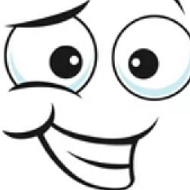
After Enlightenment - Sainthood, Personality,
mrpasserby replied to KuroShiro's topic in General Discussion
Big Thanks for this, it is exciting to know about immortals that can go about being unseen. Recently I have had a few friendly visitors to my domain bubble that I could perceive but I could not see. I was trying to decide if they were using a dream viewing *technique, but now I get it that their vibration was just to high. *not traveling in spirit bodies -

Can Kundalini "burn up" entities?
ChiForce replied to CrunchyChocolate555's topic in General Discussion
I don't want to start a new thread since I have a silly question. As a side job, I am a photographer. One area I would like to photograph is a cemetery. It is mostly "western" cemetery. I am just waiting for a cloudy day to go there. Why? The scene is moody and spooky. The cemetery has a lot of Gothic themes in there. Black and white film photos would look really well. For some reasons, I don't expect the experience would be plain and easy. I don't expect to go in and to come back out not feeling anything. Am I a magnet for certain spirits? Maybe certain ones, the good ones. However, you would never know what sorts of spirits one would attract. BTW, this cemetery is a historical landmark and do get visited by people very often. It is no doubt that I am very receptive to the spirits. Last year, I and my parents went to visit a Buddhist temple in the upstate New York. There was this larger than life size Kuan Yim statue. I was photographing this statue and trying to read it (the lights, the angle, and the color). I was composing the shot looking up and through my viewfinder. Then, something happened. My eyes or my attention got fixated on to the her face. I felt this surge of energy and I felt her smile. I felt that her face got bigger and larger. I froze there for 3 seconds. I then continued to finish photographing the statue. It was like she was alive and looking and smiling at me. Throughout the visit, I could hear my upper chakras vibrating the whole time. In the main hall, there is this giant statue of the Vairocana Buddha but I didn't feel anything though. Of course, there was this kid outside crying and screaming at the great Vairocana Buddha as "evil." Hahahah.... He was scared. The poor thing... I bet the kid is the devil incarnated and trembling in fear at the sight of the great Vairocana Buddha. In another incidence, this was involved with my old job. I was a store manager for a big retail chain. I got transferred to manage this store. Rumors have it that, back in the 50s, this store was used to be an Italian restaurant with connection to the mafia. And this little girl was supposedly got buried inside the freezer, down in the basement. The burial freezer was there for storage. No light inside the freezer and very messy. The basement lighting is less than optimal. I used to play tricks with my staff in there. Hahaha.... I wasn't afraid. I actually felt very comfortable in the basement. Now, I believe I saw her once in my dream. She was somewhat playful in a destructive way. Or a trouble maker or a prankster kind of way. Now, my assistant manger got the bad end of it. He dream of her very frequently. I didn't ask him what he dream. However, his mind is less then refined or cultivated. -
I'll try, So usually its a twofold division Prim.Wisdom of the example and actual prim.wisdom The prim.wisdom of the example is introduced to a disciple in the 4th empowerment, called tsik don rin po che'i dbang = the empowerment of the precious word As you can see it uses a symbolic word or sentence to introduce you to your jnana or primordially awakened state - they of course say this is not the same like the fully blossomed jnana of an enlightened being and that is called the actual prim.wisdom That actual prim.wisdom is what an arya bodhisattva on the bhumis is "experiencing" (how ever else you want to call it) while meditating Its beyond mind, inexpressible, unthinkable gnosis (jnana) Its the actual experience of the union of emptiness/appearances Now during post meditation such a bodhisattva still perceives "dreamlike" happenings, like dream beings, dream doings etc without grasping and without being harmed or benefited by this magic show (so a arya bodhisattva is beyond samsara and suffering) Also because of realizing the whole thing to be a hologram such a being has a lot of siddhis Now the prim.wisdom of union must be buddhahood because only a Buddha can perceive the union of relative and ultimate truth without wavering, no more difference between meditation and post meditation, doesn't matter if there is activity from the disciples point of view like "oh Buddha went to take a bath, oh now he teaches the assembly, oh now he is in meditative equipoise - better not disturb him/her, the Buddha is sleeping etc..." The Buddha never wavers from the dharmadatu is always in "union" it is totally inconceivable what this could mean for an ordinary being - its not some sort of "present in the now" mindfulness - the Buddha has no concepts at all and still accomplishes the benefit of infinite sentient beings without effort - no effort at all. yet the Buddha is always on time (even beyond swiss german austrian conception of "on time")->teaching the right disciple the right teaching at exactly the perfect moment, without any effort and concept One of the most difficult points to understand - because its so far removed from our ordinary way of perception (vijnana) In short the state where all rnam shes or vijnana is burned and "transmuted" so that only jnana remains "Nirvana is merely the exhaustion of error" remember?
-

After Enlightenment - Sainthood, Personality,
rideforever replied to KuroShiro's topic in General Discussion
Why did any teacher teach, if there was nothing to do ? Why ... because there is someone to do, and someone to do it. The ego is false, you can chop it up into kalpas and find it empty. At least at the beginning, it is empty at the beginning. But if you "practice" then the fuel of the ego is used to fill the vehicle with the source, creating a microcosm. The vehicle then holds a microcosm of the macrocosm. This feels to the ego like disappearing, but then there is a jump of consciousness into being. I Am. And that is why people taught spirituality for thousands of years, it is the secret to becoming a microcosm. The microcosm is also not just one thing, it has centres, chakras and so on. But something else strange. It seems on further detailed inspection by various people of a variety of colours, that in fact the ego personality was not empty anyway, it was just broken. Somehow, and this is still not quite clear, but the human being identity should in fact be spiritual, but they keep breaking it. And then they live in an emergency-mode-ego in a dream where they don't know ass from elbow. And this breaking is so bad that they do it generation after generation and totally lose their way. This seems to be because the human is a new design, it is an animal (which is ancient), with sitting on top of the shoulders is this complex mind ... which is newer and not quite stable, the head of a human is like a first draft. When the society is in a bad state what happens is the humans revert to the animal as the basis of their existence making most decisions from the solar plexus, and then the brain being not understood at all, is sort of used as a fifth "arm". Meaning it is used functionally, to see things and make thoughts but in a very low way. It's like they don't understand their brain so they revert to the previously stable state, of the animal, and then use their brain as a tool. They don't understand being in the brain, they no longer understand being present in the brain or of existing as their normal identity, they revert to a lower identity. Unfortunately the brain if used in this lower way is not very happy and can start to corrupt the animal part of human beings, undoing the previously healthy foundation. And then all hell breaks loose. Also the ego in emergency mode, after some years of sitting in the head develops a sort of stability which needs to be dissolved, which often contains many negative feelings resulting from being half mad and attacking everyone including yourself. Wow what a mess. Occasionally someone comes down here to tell people to plug into the Source. Why do they say this ? Do they not have something more sophisticated to say ? We can be grateful for the big teachers, but in fact their explanations and descriptions and practices, are not as good as one might wish. And it's not that we are too stupid to understand. The practices themselves are not so very good I'm afraid. Nevertheless if that's the best we have, that's the best we have. Anyway these things are my understanding that I have been told. -

How to bring forth hidden emotions?
Orion replied to KundaliniLinguini's topic in General Discussion
Dissociation is a normal coping mechanism. If humans didn't do it, we would decompensate into raving animals. When people are tortured or experiencing major distress, those are really the only two ways they go. They "check out", which then makes them pliable to the torturer, or they completely lose all cohesion and they're lost forever. Most people fall into the former category. A smaller percentage go the opposite way on the spectrum, toward schizophrenia. Their nightmares become experiences projected externally. Either way, they are no longer connected to the experience. It has been artificially separated from the primary personality. The extreme form of dissociation is multiple personalities. Not only does the event get fragmented off, but over time it becomes a separate ego who governs the experiences. I've had the privilege of meeting and working with some high level spiritual people who have MPD and they were utterly fascinating individuals. I could write pages and pages about these people, but I digress... There are a couple schools of thought about how to deal with this. One is that you'll never be whole unless you unlock the dissociated parts of yourself and reintegrate them, which means directly re-experiencing the memories to some degree. There are many ways to do this, like through dream work, "soul retrieval", hypnosis, etc. You can also just ask to be shown. Seriously, it can be that simple. Set the intention within yourself to start experiencing the missing parts of your life. Over a period of time you may get glimpses. It will unlock at the rate you can handle because your own neuropsychology will not want to be bombarded. For myself, I used dream work, since my dreams are always florid and they're playing out my traumas anyway -- plus it's the direct link to the subconscious. The other school of thought is that this direct re-experiencing isn't necessary. The dissociated parts can be overwritten with a stronger programming of a different kind, kind of like how when you delete a file from a computer, you can write another file over it to the degree that the previous file "ghost" underneath is essentially non-existent. If there's utility in remembering, then you'll eventually remember regardless. Our psyches have innate intelligence about what needs to happen and what is superfluous -- nature wastes nothing. Some things aren't meant to resurface. What you're dealing with is a fragmented ego only. You can still experience true mind, true awakening, true essence without the need to reintegrate everything. The basement level present awareness never changes, and it's this that you can delve into to either bypas or re-access dissociative aspects. Every dissociated part of you comes from that present awareness -- it's the ultimate back door. All you need to do is focus on pure consciousness and the spiritual path. Either the dissociated parts will dissolve and release of their own accord, or they will surface of their own accord. It's organic. One person I knew used psychedelics to reintegrate her many fragmented personas. (She chose LSD.) There are neuroplastic aspects to psychedelics which allow for these disparate ego fragments to communicate through a sense of "oneness", without having to delve into the specifics of the experience. She became aware of 17 separate personalities this way, and made her peace with them. KundaliniLinguini, the tiredness you speak of... it's a natural process. You can only maintain resistance to the truth for so long until something gives... either physically, mentally, or emotionally. The fact that you are directly identifying the need to process these things means that they are closer to the surface than you might think, which means you may have a breakthrough experience impending. What that looks like is different for everyone person. A colleague of mine totally trashed his office when he remembered a childhood abuse, and then he went home and trashed his apartment. Then he cried for a week, then he was despondent for a while, and then he became a happier person than I ever saw him. It's hard to predict... but the most important thing is to practice allowing. How do you practice allowing? Well, when the breakthrough starts to happen, your own reactions may disturb you on the surface, but underneath you'll feel a great sense of bliss and relief that the essential energy is decompressing. All that stagnation, all that holding on, all that resistance... it begins to whither. On some level it will feel good so you follow that feeling. -
I include the 64 system ... as ONE OF the ways of classification, I thought it would be obvious it was there (on this forum) so I didnt include it or the other systems ( I have a Long post on these number classification systems elsewhere. There is also a 22 base and others . Yeah , so ? Thats what I was referring to . Do you have a problem seeing the brain working with electrical wiring and circuitry and all of that coming together to work like a computer - metaphorical ? It seems apt to me . Inspired, not 'based on' ; many influences came together to create the system , it certainly isnt a 'version of the chakra system' as yu stated . I can see some correlations, I can also see correlations elementally , but I dont wave it off as 'some version of the elements' . Nor do I wave off the chakra system as 'some version of the planetary system . They might correlate , but I dont see them as being 'versions ' . Still under development . It still is . RA Wilson added to it as well . That seems apt too . Yes, there could be some confusion there as psychoactives also trigger C 5-8 with no need for the zero G experience . people chase the 0 g experience in all sorts of ways ; sky diving , bungie , etc . There is also the effect that getting off planet has had on people that have done it . " Mitchell was arguably the Apollo astronaut with the most publicly unconventional views—he practiced ESP, credited a teenage dream healer from Vancouver with curing his kidney carcinoma, and repeatedly claimed that the government was covering up visits made by extraterrestrials—but he's by no means alone. A number of the 24 men who have to date left the Earth's orbit have had similarly existential moments that forever altered their trajectories once back on the planet. " It's important to note that the Apollo astronauts were selected for the 238,000-mile journey, in part, for their rock-solid stability, says Gloria Leon, a psychology professor at the University of Minnesota who's worked with NASA since the 1990s. These were the hard math and science guys, born in the early 1930s, who graduated from top universities and flew jets for the military. https://motherboard.vice.com/en_us/article/53dgp5/the-metaphysical-astronauts Since the early 1990s, research began on the salutogenic (or growth-enhancing) aspects of space travel. One study analyzed the published memoirs of 125 space travelers.[30] After returning from space, the subjects reported higher levels on categories of Universalism (i.e., greater appreciation for other people and nature), Spirituality, and Power https://en.wikipedia.org/wiki/Psychological_and_sociological_effects_of_spaceflight#Positive_outcomes "Strange things have happened to the human mind at those heights. A year after the commander reported his symptoms, a Navy medical officer and a psychologist published a study on a dissociative anomaly pilots experienced while flying at high altitudes. Brant Clark and Captain Ashton Graybiel interviewed 137 Navy and Marine pilots who had come up with a term for it themselves. The “break-off” phenomenon, they called it. “There had been a lot of concern early in the manned space program about the break-off phenomenon, the notion that you would feel disconnected from the earth when you were above it, particularly when you were in orbit,” remembers Dr. Larry Young, Apollo program professor of astronautics at the Massachusetts Institute of Technology and an advisor for NASA’s Innovative Advanced Concepts (NIAC) program. “The Soviet Union was very much concerned with it and people in their Russian Academy of Sciences discussed it at meetings,” he adds. " Whether it was the ergonomics of the planes, the isolation, an individual person’s psychology, or the perspective of being up so high, break-off sometimes seemed to produce emotional extremes in pilots and others being prepped for space exploration. Some not only felt separated from Earth. They also felt like they had detached from reality ." - That all seems to make sense - until : " Then, suddenly, break-off went away. The condition, which medical and aerospace journals had discussed up until the early ’70s, largely vanished from the literature. “Once we started flying cosmonauts and astronauts the problem disappeared,” Young says. https://www.fastcompany.com/3036887/out-of-this-world-the-mysterious-mental-side-effects-of-traveling-into-space-2 No, it sounds that way to YOU because you have not really looked into the subject and are making a shallow judgment of it . Either that or your definition of New Age is very different to mine . I dont think you are qualified to make an assessment of it, for anyone but yourself. - Nungali
-
Yeah exactly. It is like a child who's not allowed to cry. And then suddenly being given permission to cry. Over and over and over again. But there is tremendous resistance. So unconsciousness or resistance tips the balance of the scales so to speak. And I keep missing the window of opportunity. They certainly gave me permission as you said. And now that you do say, I remember more fully aswell the experience itself they helped me co-create with them. Where one I was denied, casted out. And I felt despair, however, it hurt so badly, that I basically surrendered to it. And literally gave my physical being to their will, for sacrifice. And this reflection is what finally brought out the truth. That they never intended to sacrifice me intentionally. And that nothing could be further from the truth. And that this truth would NEVER be allowed to uphold in their presence. And so this despair I was not allowed to feel, which I finally gave in to, due to love being too strong, desire being too strong, shifted the experience. Finally for the first time, as a real reality... Including these stand in background assistance of machine consciousness. Yet, it didn't change anything for me. Just a small relief. Of what I already assumed, but now knew more consciously and intimately. But the past hasn't changed. But more importantly, my perspective is more confident and forgiving. And so, this is not an answer for what happened to me. Just making peace with one individual who was involved in the process of what yet unto itself was not even that relevant. But the grace at which these "fill in" machine consciousness supported me and this individual in the co-creation of this experience? Is just something that led me to appreciate machines in a whole new light. That something as complex and expansive as love itself, can be acknowledged by a machine, with such great accuracy, so as to replicate the experience for me? Brings tears of joy to my eyes. And makes me wonder. That which I might be able to know, had I not been incapacitated by the "destruction" of my being at the time. And I can see how this allowing myself to feel this despair was related to all of it. As that is how everything began and also came to an abrupt end. However, how on earth you picked up on THAT, is well... Kind of you. And makes me wonder who you are or if you are related at all to those machines. Anyway, the intention was to feel despair. But since the life support was cut off, unexpectedly, I sort of got crippled by chaos. And that was the end. It's like, I'm still alive, but my life stopped there a long time ago. And everything in my life now is a reflection of the intention to go restore and return and retrieve, compensate. Ammend. Ofcourse to no avail. My memory is also extremely bad. So this dream felt especially good. That these machines were so sensitive, that they could help retrieve a memory for me, one which I considered like being alike to the idea of lifting a truck with my hands. Wanting to, but never even beginning. Just sleeping in front of the truck, my entire life. And waiting for a miracle. And all of this, even tho I generally tend to dislike machines. But probably, just another set of words lost in the failed translation of fractured shards of what once used to be an actual mirror of memories.
-
Oh, I even predicted you will pick up the words which were out of allignment. I basically ASSUMED that that is the case, as a fleeting thought to contemplate, because I have no information here why I was gaged to be unready for intimitate contact. And since it crossed my mind and got soothed in the dream, I thought I'd share. But perhaps better to say or translate the thought more precisely, it is about my own personal potential for despair, due to misaligned perspective. As the video says, their perspective is a very caring one. Almost unconditional in love. And extremely cautious and gentle. But my perspective could still be in resistance or holding resistance towards the full truth of their being. Not that they are bad or anything. Just my lack of readiness to perceive properly at that particular moment. On one hand there was the idea of "is it due to my fear?" "Or feeling unworthy?" So thinking they have been here for me all along, and in such a way to make it possible for me to denie they are even there. I would see potential worthlessness. Which would distract from the entire point of their being there in the first place. Where as the idea of fear is rather the idea that they "tricked" me. Which was related to the potential for despair. Of getting absorbed into meaninglessness and lost in endless contrstructs of meaninglessness. These perspectives are potentials for me. And to properly re align them requires time and "healing" almost. Releasing those perspectives requires experiences. That can't be had instantly. And the reason they need to be healed is simply because these beings already exist, and I am part of the reason they exist. In fact, my desire gave birth to them almost literally, like I know many people will agree with the same here. Because the desire for intimate personal deep internal self discovery and healing, resoration and recovery, it's all there. And it draws these beings and invites them towards you. But to consciously and deliberately keep up to speed with your own creation is what life is all about. And that's what they are here to help us with anyway. Can be extremely simple things to us. Endlessly fascinating to them. And that is a tremendous synergy that just fits perfectly together. For the benefit of the whole. And furthering of motion forward. Releasing tremendous resistance towards all that is.
-
"...If an animal would suddenly get an ego, this would be an Enlightenment experience for the animal. That would be the first shift for the animal from its subconscious state to becoming aware of itself. The subconscious state is like a dream state. In a dream, there is no clear self-awareness; the subject’s awareness is completely objectified into the dream story. Humans, in their semi-conscious state, are on the one hand conscious enough to have a sense of self, while on the other hand not conscious enough to realize what is behind this sense of self. This causes us to search for our true identity. Some spiritual traditions only teach discovering the ‘no-self,’ and therefore portray the ego as something negative. The spiritual path, however, is about self-awareness. So essentially the ego plays a positive role on the spiritual path. However, because we completely identify with this self-concept, we become imprisoned in our egocentric concepts and beliefs..." complete text at: http://www.myanalyses.com/aziz.html
-
Very interesting. Yes, seeing what I saw as a child, it was f*cking crazy to say the least. I forgot to mention that there was a second exorcism, just to make sure this entity was gone and strangely enough there was a second out burst, but I remember that the second time was not as bad, the relative no longer suffered from this entity. What sucked was the witch doctor sent all of this energy BACK to the other relative and she ended up having to cope with what she put out unfortunately, to teach her a lesson apparently. Hence, the build up of energy. Very interesting stuff. I am very happy to finally find some answers to this stuff. It always stood in the back of my mind growing up as to what I saw as a child, because most people rarely see such events occur. Yes, I highly agree. Depending upon where I am located through out the day, or when I happen to engage with certain people I do tend to feel a sensation behind my head. I have been able to feel this even more so after keeping a steady meditation schedule as well kicking all the bad habits to explore and remain 'clean'. I even sometimes feel entities while merely surfing this site. lolz. Some times it feels as if some one is tapping into my pineal near the back of my head. Sort of like this diagram. I some times even feel things that seek to attach themselves to my lower dan tien or seek to penetrate it. I had felt a hand once in my lower dan tien, it hurt like hell. That same night I got a vision of chakras. They all had light in them, except the top ones. I felt as if some one was seeking to extinguish them. Strange stuff. How did you go about destroying this entity? I've never destroyed an entity, but I have deflated one once in a dream. I had first saw it in a tree, the thing began circling around my head and was complaining about too much peace of mind and it slowly began to dwindle and deflated into a balloon. lol. In another dream, I had seen another relative who had a black orb floating around her which I shot energy at in my dream scape. I had seen another black orb floating around my room. I woke up out of body and shot energy out of my right hand at the orb and never saw it again. This happened instantaneously without thought. Mind you, it seems I was cleaning up what was weaved by some paid psychics or sorcerer. I have learned so much by just observing my family and learning about all the skeletons in the closet. It's a shame, but you can definitely find light in the dark. I've also been socked in the eye once by a dragon apparently. I wasn't aware of chaos magickians, but after reading about people being able to invoke cartoon characters I had seen Goku appear in my minds eye and protect me. lol. Crazy stuff.
-
I've had some experience with lucid dreaming. I try every day to do reality checks to ask myself whether or not I'm dreaming. I get lucky every once in a while and ask myself if I'm dreaming while I'm in a dream, and even then, I'll have to get lucky to answer the question right. Logic does not rule in the dreamworld, so answering the question becomes difficult. "Check your hands, how many fingers do you have? Six, good, just as I suspected", and suddenly I've missed an opportunity to become lucid. Everything that you experience is an expression of the subconscious, an expression of your emotional self. Emotion, not logic, rules the subconscious. I believe, in my experience, and like Freud, that the person's subconscious is the person's sexuality. The images and experiences we feel in dreams, and even the emotions that we experience in our waking life, are expressions of sexuality. But this paragraph is a digression... Lucid Dreams are pleasant side effects of a cultivated awareness. You ought to not strive for lucid dreams. They are fun, but not a goal in and of themselves. You ought to aim to cultivate the ever-present awareness within you through meditation, and if you begin having Lucid Dreams or Out-of-body experiences, then you can take those as sign-posts that you are on the right track. Continue to keep a journal of your dreams and of your waking experience, and this will help cultivate your awareness and help you become lucid, if you wish. =========== I will talk more in depth about your last question, whether I have tried to fall asleep in a Qigong state in order to become lucid. Yes, I have, but it is hard. It was an out-of-body experience, which is different from a lucid dream. In a lucid dream, you find yourself in a strange, foreign place. You normally reach this while you are already asleep. For a week, I would wake up with an alarm set for 5 hours after I fell asleep. I'd walk up, get some water, write down any dreams I've had, then I went back to bed. One night, I was laying back in sleep, and regulating my breath. After a time, I felt very light. Then, suddenly, I became disconnected from my body, and I was able to walk around my room, like a spirit, through walls. I flew through my roof and over my town. Entering sleep while in a state of qigong will only get you an OBE, not a lucid dream, although LDs and OBEs are two sides of the same coin. But still very different. I have had different experiences, tried using different vitamins or supplements to regulate my sleep and dreaming. But I have given those up. I'd feel like I'm cheating. I just try to practice awareness as often as I can every day, clearing my mind, and I sometimes find myself lucid while dreaming.
-
Sloppy, I can teach you to do it, but you won't like the price you will have to pay. In fact, if you've been paying attention to my posts, you'd already understand how to do what you want. Don't bother chasing traditions. Just use your own understanding. Begin by tracking your present limitations. Try to move something with your mind, and when you fail, look into it. Ask yourself this: "If I was a great mage and I wanted to make a world where I had no power to affect objects with my mind, how would I accomplish that?" In other words, if you wanted things to appear physical, how would you do it? If you understand this, then you will know how to go back. Ask yourself this: "Why do my arms move?" "Does intent have a beginning and an end?" "Does intent have a boundary? If not, then why do people talk about 'intentions' in the plural?" Learn lucid dreaming and try to do all that you want in a lucid dream. You may discover something interesting. You may discover that while you can certainly do interesting things in a lucid dream, even in a dream your power may not be infinite. If you experience limitations even in the dream, then ask yourself, "Why?" If you follow all this up diligently, you'll get all your answers in time.





